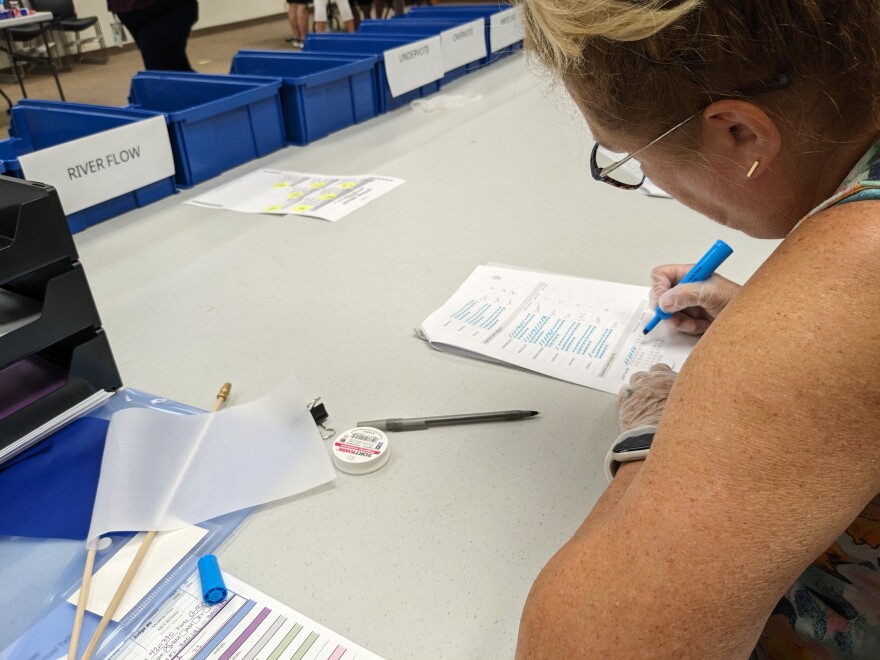Earlier this year, right-wing supervisors in Shasta County had ordered elections officials to hand-count ballots in future elections. It’s been found to be more expensive, more time-consuming and less accurate than using state-approved machines.
But lawmakers in Sacramento banned the practice, with a final vote on Assembly Bill 969 on Friday. The bill bans hand-counting for regularly scheduled elections with more than 1,000 registered voters, and special elections with more than 5,000 registered voters.
There are just a few times those rules would be relaxed, in the event of a natural disaster or a state of emergency when using an electronic voting system isn't feasible, such as a wildfire or power outage.
The bill will enforce the common practice of using state-approved voting machines. Every other county in California uses certified voting machines, including the least populous — Alpine County — that had fewer than 1,000 registered voters as of February, 2023.
“It's not just about Shasta County, I don't think it's just about us," said Shasta County Supervisor Mary Rickert, who opposed hand-counting. "I think it's about 'we don't want any other county to make the same mistake.'”
The bill was introduced by Assemblymember Gail Pellerin (D-Santa Cruz), who was the elections official for Santa Cruz County for 27 years.
"Voters and candidates and measure committees are always very anxious to get those vote results as soon as possible," said Pellerin in an elections committee meeting on Thursday. "And utilizing technology in today's day and age helps us to meet those deadlines that everyone's waiting for."
Pellerin added that ballots in California are extremely complex, and it's very labor intensive to count every single contest on a ballot. During a test of the hand-counting system for Shasta County on Aug. 17, election workers took about an hour to count a batch of 25 ballots, which included 12 separate contests. It took a team of 19 workers six hours to count 500 ballots, a task that an electronic ballot scanner can complete in far less time.

County Clerk Cathy Darling Allen said the newly passed bill is tagged as urgent, meaning it will prevent hand-counting in the next local election.
“So that means when the governor signs it, it is law that day immediately," she said. "So if he signs that, then we cannot hand-count this November's election, and we will have to pivot.”
Darling Allen’s elections office has been preparing for months for hand-counting, but this state intervention means they'll have to go back to using machines.
County election workers are prepared to make that change. But they warn voters that elections will look different regardless because the county will be using voting machines from a different company. After cancelling their contract with Dominion Voting Systems earlier this year, county supervisors signed a new contract with Hart InterCivic to provide voting equipment.
Supervisors Kevin Crye and Patrick Jones — who both supported the hand-count movement — declined requests for an interview, so it's unknown what could happen next. According to Darling Allen, it could be possible for county supervisors to order the elections office to conduct a full hand-counted audit of the ballots after they're counted by the machines. The elections office already conducts a hand-recount of 1% of the ballots, to check for any mistakes the machines might have made.
"They can't violate state law, but they can add additional audit requirements, certainly," she said.
By not hand-counting its elections, the county would save millions of dollars that the elections office expected to spend on staffing alone, to hire the amount of election workers needed to count all the ballots in time to meet state deadlines.
After passing the Assembly, AB 969 now heads to the governor's desk, where it's expected to be signed by October 14.



